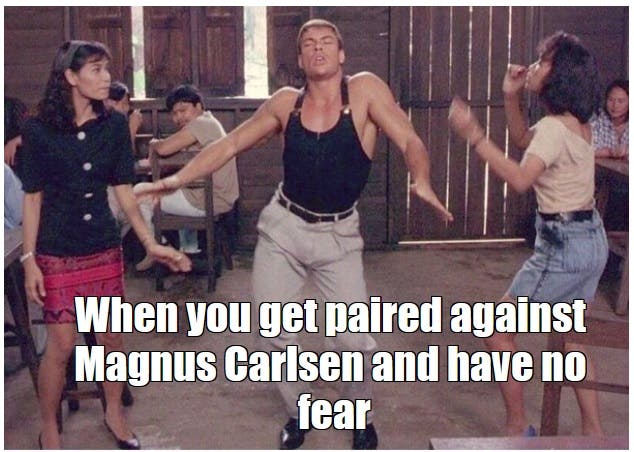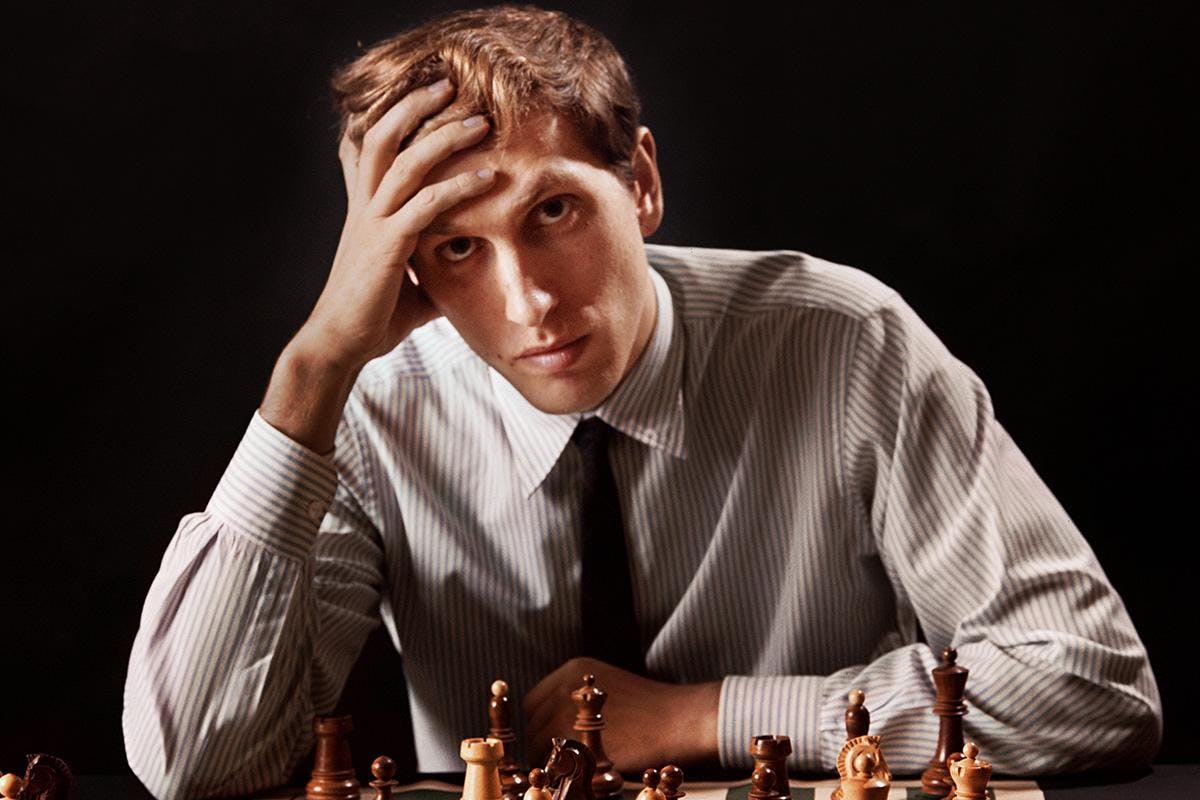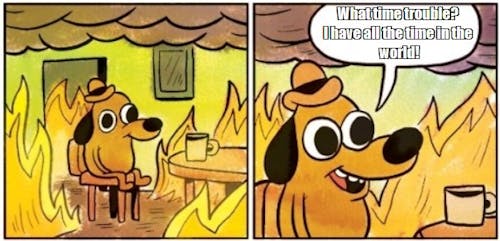Are you sure you want to delete your account?
(This will permanently delete all of your data - purchases, game scores, ratings, etc)
Change your username
Your current username is: guest
Change your account email address
Your current account email is:
Redeem your Fampay code here!
Use your Fampay code to get access to the Play Magnus Plus Membership!

The Fear of Failure and Your Wiki Page
You miss 100% of the shots you don't take.
Wayne Gretzky
Fear is the greatest obstacle for most of us on our way to happiness.
The statement is especially true for people who grew up in an environment where "making mistakes" and "failing" were unacceptable things worthy of reproach or even punishment.
People who lack self-confidence are typically afraid that their behavior will be made fun of by their friends or relatives.
Perfectionists are even harder on themselves. They have inner censors that prevent them from trying to do something in case there is a possibility of not meeting the surreal self-imposed expectations. This results in anxiety, procrastination, and, eventually, frustration.
Have you ever caught yourself red-handed doing something of the following?
· Skipping a tournament that you were planning to compete in due to feeling like you were not prepared well enough, even though your preparation was reasonably OK.
· Refusing to play someone rated above yourself because of fear of getting humiliated.
· Playing against the computer all the time since losing to a machine doesn't hurt your ego as much as getting defeated by other humans.
· Not registering at an online play zone and blitzing there casually without getting a rating or spamming unrated games to avoid potential rating losses.
· Happily beating a weaker opponent repeatedly to feel good about yourself.
In fact, most people are too obsessed with themselves and concerned about what others might think. In reality, when it comes to chess, hardly anyone cares how we perform. All the "crime and punishment" stories exist purely in our heads. Even when top GMs have a terrible tournament, most fans forget about it in a few days. If we consider an average chess player, there are maybe only some family members and a few friends who are concerned…if at all. If one of them breaks a nail, they will probably be more pissed than if you lose 30 rating points in a single event!

Anxiety and fear overcome not only ordinary people but even legendary champions. We can't get a peek inside the mind of Bobby Fischer and don't know for sure why he chose not to defend his title. A popular simplistic assumption is that he was afraid of the rising star Anatoly Karpov. Another theory I find more convincing is that he put too much pressure on himself and was worried about not playing chess as perfectly as a World Champion should. What we know for sure, however, is that the chess world had suffered a terrible blow when the Fischer vs. Karpov match in 1975 never materialized.
Overcoming fear is a complicated, multi-faceted subject that can't be addressed in a single column. There are all sorts of techniques that help let go of your fears. For instance, recently, I have read and rated 8/10 a book by Jim Lawless titled "Taming Tigers: Do Things You Never Thought You Could". One of its key messages is simple yet efficient: you become stronger when you embrace your fear and do something that scares you every day. This process feels rewarding and boosts your self-esteem.
On top of that general advice, let me suggest one of the tips that I find quite useful when dealing with chess fear. In case you don't have a personal Wikipedia page yet, think what you would like to read there. Even better, write a draft without submitting it (you are not supposed to write about yourself on Wiki!). This exercise helps you sort out your long-term goals and understand what is truly important for you in terms of achievements. After you have completed the challenge, go for it and make your dreams come true step by step!
More specifically, when it comes to chess, decide what your title is going to be. Do you want to become a master? Or even Grandmaster? Dream big and back it up with adequate efforts! Everything in life has a price that you should be prepared to pay.
Which peak rating are you aiming to achieve? Magnus Carlsen has stated recently that his next target is going to be 2900+ Elo in classical chess, which is an unprecedented height.
What are going to be your most important tournament victories? For some people, it's essential to have a clear-cut goal in front of themselves. For instance, GM Davorin Kuljasevic mentioned on several occasions that his primary motivation as a kid was to win the junior World Chess Championship. Even though he couldn't accomplish his goal due to immense competition, he became a strong GM as a result of working hard to fulfill his dream.
One of the benefits of choosing the Wiki page route is that such encyclopedias typically focus only on your major achievements. Unless it is some record, which is remarkable by itself, you are not likely to see there your worst defeats or last-place finishes in tournaments. Therefore, you have nothing to lose by striving to make that profile reality but a lot to gain. Doing something and not succeeding at once is no longer a problem.
The only way to avoid mistakes is to do nothing, but this is a mistake by itself!


